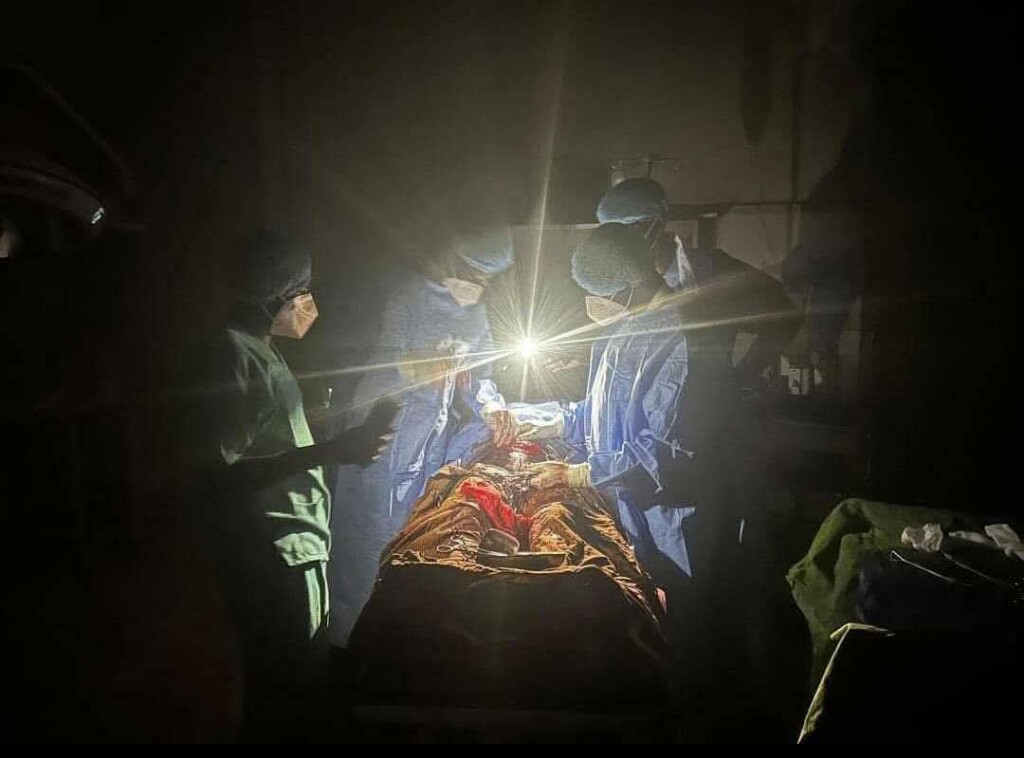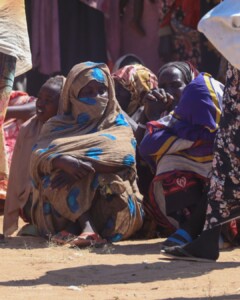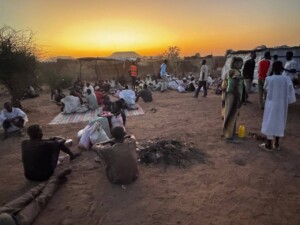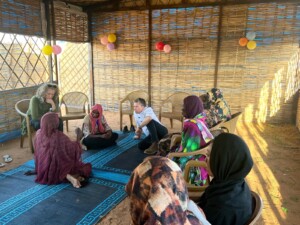70+ dead in renewed North Darfur hospital bombing

Doctors at the Saudi Hospital in El Fasher, the capital of North Darfur, resort to the flashlights on their mobile phones to perform surgery when shelling caused a power outage (File photo: SUNA)
A bombing by Sudan’s paramilitary Rapid Support Forces (RSF) on the maternity ward of the Saudi Hospital in El Fasher, North Darfur, has killed at least 70 people and injured dozens, wiping out the city’s only fully operational health facility, according to the El Fasher Resistance Committees.
The attack on Friday night destroyed the hospital’s emergency department, leaving the city without its only fully operational health facility.
The Saudi hospital, a lifeline for obstetrics, paediatrics, and surgery, has been repeatedly shelled.
Darfur’s governor, Minni Arko Minawi, condemned the bombing as “an extermination,” reporting over 70 deaths, including women and children. “This was a horrific attack on vulnerable patients,” he said on X (formerly Twitter).
Alongside the attack on the hospital, the RSF’s multi-pronged attack on El Fasher on Friday, also struck the Abu Shouk displacement camp, killing eight people, injuring dozens, and destroying homes. The attack prompted fierce resistance from Sudanese Armed Forces (SAF).
The violence prompted Ayoub Nahar, an RSF advisor, to resign, citing the force’s “deviation” and its targeting of civilians. “Indiscriminate shelling in Zamzam camp, Abu Shouk camp, and other camps has killed innocent civilians,” Nahar said in a video statement, severing ties with the RSF.
The World Health Organisation (WHO) condemned the attack as “horrific,” warning it worsens North Darfur’s health crisis.
Saudi Arabia and the Gulf Cooperation Council labelled the bombing a “flagrant violation of international humanitarian law” and called for accountability. Qatar echoed calls for protecting health workers and civilians.
The Saudi Hospital bombing highlights the deteriorating humanitarian situation in Darfur. Similar attacks, including on the MADO health centre in El Malha, have crippled healthcare services, leaving displaced populations in dire need.
The incident has reignited calls for peace and accountability as Sudan’s ongoing conflict devastates communities and threatens the survival of essential services.











 and then
and then